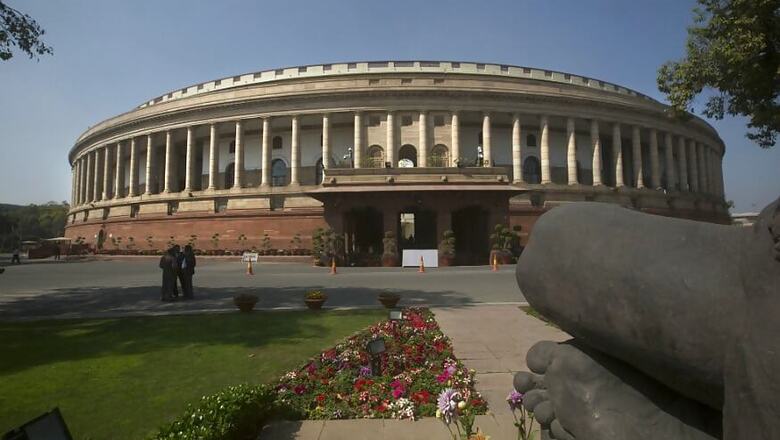
views
With the process of administering oath to the members of the lower house of the Parliament having concluded, the 17th Lok Sabha will elect its speaker on day 2 of the budget session. Authority of Speaker
The speaker is the conventional head of the lower house with a constitutional status at par with that of the Chief Justice of India. It is the speaker who decides when a member speaks, how much time she gets, what gets included in the official account and which statements get expunged, and whether, in cases of a member causing disturbance, she remains in the House or is expelled from it.
The Lok Sabha speaker is also the principal spokesman, the ultimate arbiter and interpreter of those provisions which relate to the functioning of the House. One of India’s founding fathers and its first Prime Minister Jawaharlal Nehru had said of the chair of the Lok Sabha speaker, that she “represents the House. He/she represents the dignity of the House, the freedom of the House and because the House represents the nation, in a particular way, the Speaker becomes a symbol of nation's freedom and liberty. Therefore, that should be an honoured position, a free position and should be occupied always by persons of outstanding ability and impartiality."
It is the speaker who allows the members to introduce the bills or to move motions. The speaker fixes time limit for the debates in the House, puts matters to vote and announces the results. The speaker also gets to decide whether this House will have a leader of opposition, given that Congress falls short of getting LoP status (for which opposition party requires 10% seats of Lok Sabha or 55 seats) by 3 seats. Crucially, it is the speaker who gets to arbitrate over a dispute on whether a bill is a Money Bill or not. Such a decision is final and cannot be challenged inside or outside the House.
Money Bill, since it does not need to be passed by the Rajya Sabha, is an especially tricky provision given how ruling parties are often alleged to get their preferred bills turned into laws. In Modi government’s previous term, one such contentious money bill was the Aadhaar (Targeted Delivery of Financial and Other Subsidies, Benefits and Services) Act, 2016. The opposition argued that the Aadhaar bill did not qualify as a money bill, which is defined as one that contains provisions for taxes, appropriation of funds, and other purely revenue-related matters. Election Procedure
Once the ruling party takes the decision on the name, it is officially proposed by the Prime Minister or the minister of parliamentary affairs. This time the motion to propose the name has to be done before Tuesday noon. All the motions proposed will have to be seconded by one member.
The member whose name has been proposed has to give in writing her willing to accept the chair of the speaker. All these documents have to be addressed to the secretary general, Lok Sabha. Last time 19 such motions were proposed for Sumitra Mahajan’s name.
If more than one proposal is received, these are entered in the order of receipt. The speaker pro-term presides over the sitting in which the speaker is elected. After the results are announced, the speaker-elect is conducted to the Chair by the Prime Minister and the leader of the opposition. The speaker is then felicitated by leaders of all political parties and groups in the House, to which she replies in a thanks-giving speech. And from then the new speaker takes over. Strange History
If one looks at the appointments of the last three Lok Sabha speakers, a strange pattern seems to emerge. One that suggests that once appointed as the speaker, a Lok Sabha member doesn’t get to return to the House next time.
Take the case of left stalwart Somnath Chatterjee who was appointed the speaker of the 14th Lok Sabha. Subsequently, his relations with leadership of CPI(M) turned bitter, leading to his expulsion from the party.
He was succeeded by Congress MP Meira Kumar as the speaker of the 15th Lok Sabha.
However, Kumar lost the 2014 Lok Sabha elections from her pocket borough in Sasaram parliamentary constituency to BJP’s Chedi Paswan.


















Comments
0 comment